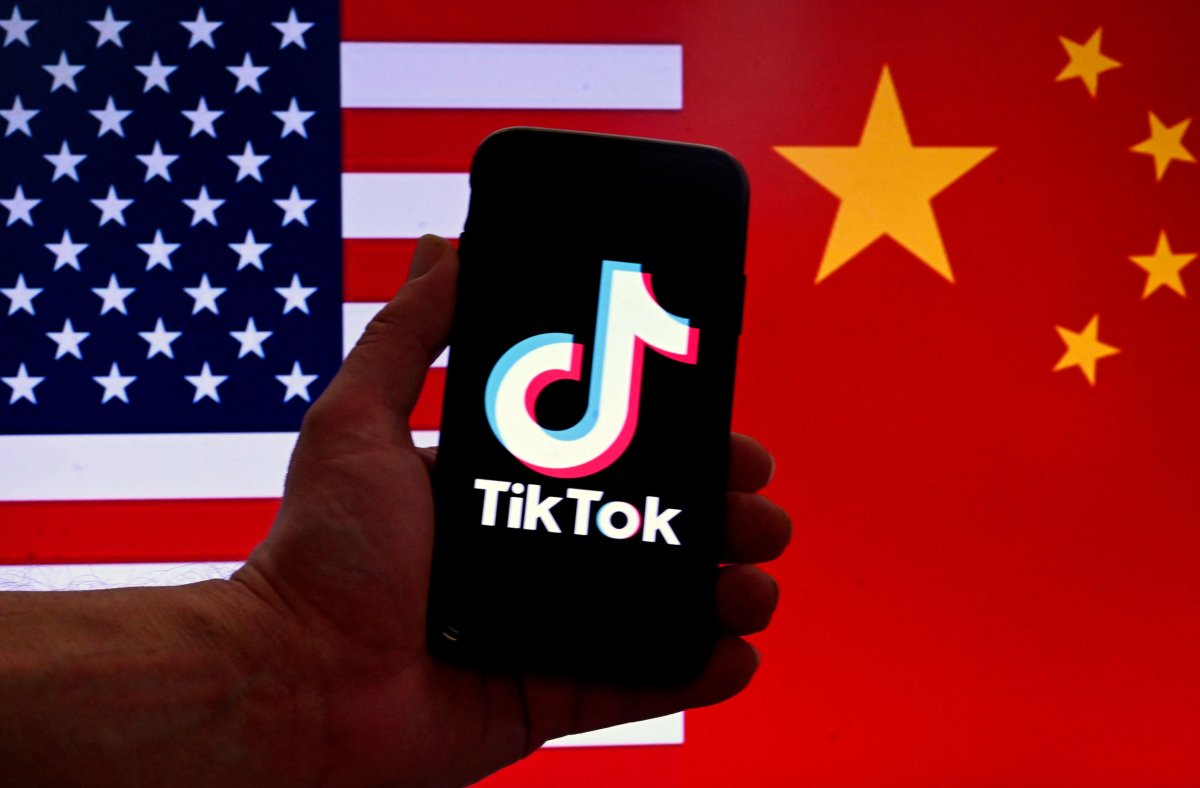Amid rising tensions between the U.S. and China, the potential ban on TikTok, the Chinese-owned social media behemoth, is igniting debate over its implications for the U.S. economy.
And the overall reaction is mixed.
As Washington increases scrutiny over TikTok, citing national security concerns, analysts Dan Ives of Wedbush Securities and Eric Jackson of EMJ Capital weighed in on the economic fallout, particularly for U.S. tech stalwarts Apple and Tesla, which have significant stakes in the Chinese market.
The legislative efforts to restrict TikTok underscore a "watershed" moment in U.S.-China relations, Ives said on CNBC's Squawk Box on Wednesday, adding that a ban could trigger retaliatory actions from China, potentially impacting American companies deeply embedded in Chinese supply chains and consumer markets.

Apple, the second-largest company by market capitalization in the U.S., and Tesla, ranked 12th, find themselves in the crosshairs of the geopolitical tensions. In 2023, Apple reported revenues of $20.82 billion from China, a substantial drop of 12.9 percent from the previous year yet still almost 20 percent of its total sales.
Tesla's reliance on the Chinese market is similarly notable, with the electric vehicle giant generating $21.75 billion in revenue from China in the same year, amounting to about 22.5 percent of its total revenue. Their economic entanglement points to the substantial impact any retaliatory measures by China could have on the tech giants.
Ives elaborated on the precarious situation, suggesting the possibility of China demanding that Apple and Tesla to divest their Chinese operations, a scenario that could set a distressing precedent for other American companies operating in China. Such a move would destabilize the companies' financial standing as well as shake global tech supply chains and market dynamics.
Echoing Ives' concerns, Jackson highlighted similar apprehensions during a CNBC interview on Thursday, pointing to a potential TikTok ban's ripple effects on Apple and Tesla. Jackson underscored the inevitability of Chinese retaliation if TikTok were to be banned, noting that such a scenario could severely impact companies with operations and market share in China.
"For sure there would be retaliation," Jackson said, illustrating a scenario in which the Chinese government might compel Apple and Tesla to divest their Chinese operations, including any intellectual property associated with them.
The move, Jackson argued, would create turmoil and could signal a broader assault on U.S. interests within China's borders. The implications could extend far beyond the tech sector, affecting investor confidence and potentially leading to a reevaluation of the risk associated with investing in broad Chinese stocks.
The analysts suggest that while a ban might serve national security interests, the broader economic repercussions could undermine the interconnected global economy, marking a shift in how tech firms navigate the choppy waters of international relations.
The debate extends into the digital marketplace's fabric. TikTok CEO Shou Zi Chew in a social media post warned of economic and social repercussions, pointing to the potential for a TikTok ban to "give more power to a handful of other social media companies," undermining competition within the digital landscape.
He highlighted the potential loss of billions in revenue and more than 300,000 American jobs tied to TikTok's operations, painting a picture of widespread economic impact beyond the tech giants.
However, a study issued by the Chicago Booth Review in September of last year sought expert opinions on the effect of a nationwide TikTok ban on innovation and the wider tech industry. The consensus among economists was mixed, with a majority agreeing that such a ban could boost profits for major U.S. tech companies.
Daron Acemoglu of MIT agreed, noting that a ban could be beneficial "unless [other social media companies] are also regulated."
Eric Maskin of Harvard agreed that a ban would allow U.S. social media firms like Instagram's Reels (Meta) and YouTube's Shorts (Google) to recuperate business lost to TikTok, suggesting a potential competitive rebalance.
Though one economist, Anil K. Kashyap of Chicago Booth, emphasized the unpredictability of China's response, which could potentially "swamp the direct effect of reducing competition."
What's Next?
Steven Mnuchin, former treasury secretary in the Trump administration, on Thursday revealed his intention to spearhead an investor group to acquire TikTok.
Mnuchin's proposition, disclosed on CNBC's Squawk Box, emerges as a potential resolution to the deadlock, suggesting a way to address national security worries without resorting to an outright ban.
His approach advocates for a model of decentralized ownership, ensuring that "no single investor or tech company would wield controlling influence over the platform," thus maintaining TikTok's operational independence.
Uncommon Knowledge
Newsweek is committed to challenging conventional wisdom and finding connections in the search for common ground.
Newsweek is committed to challenging conventional wisdom and finding connections in the search for common ground.
About the writer
Aj Fabino is a Newsweek reporter based in Chicago. His focus is reporting on Economy & Finance. Aj joined Newsweek ... Read more
To read how Newsweek uses AI as a newsroom tool, Click here.






